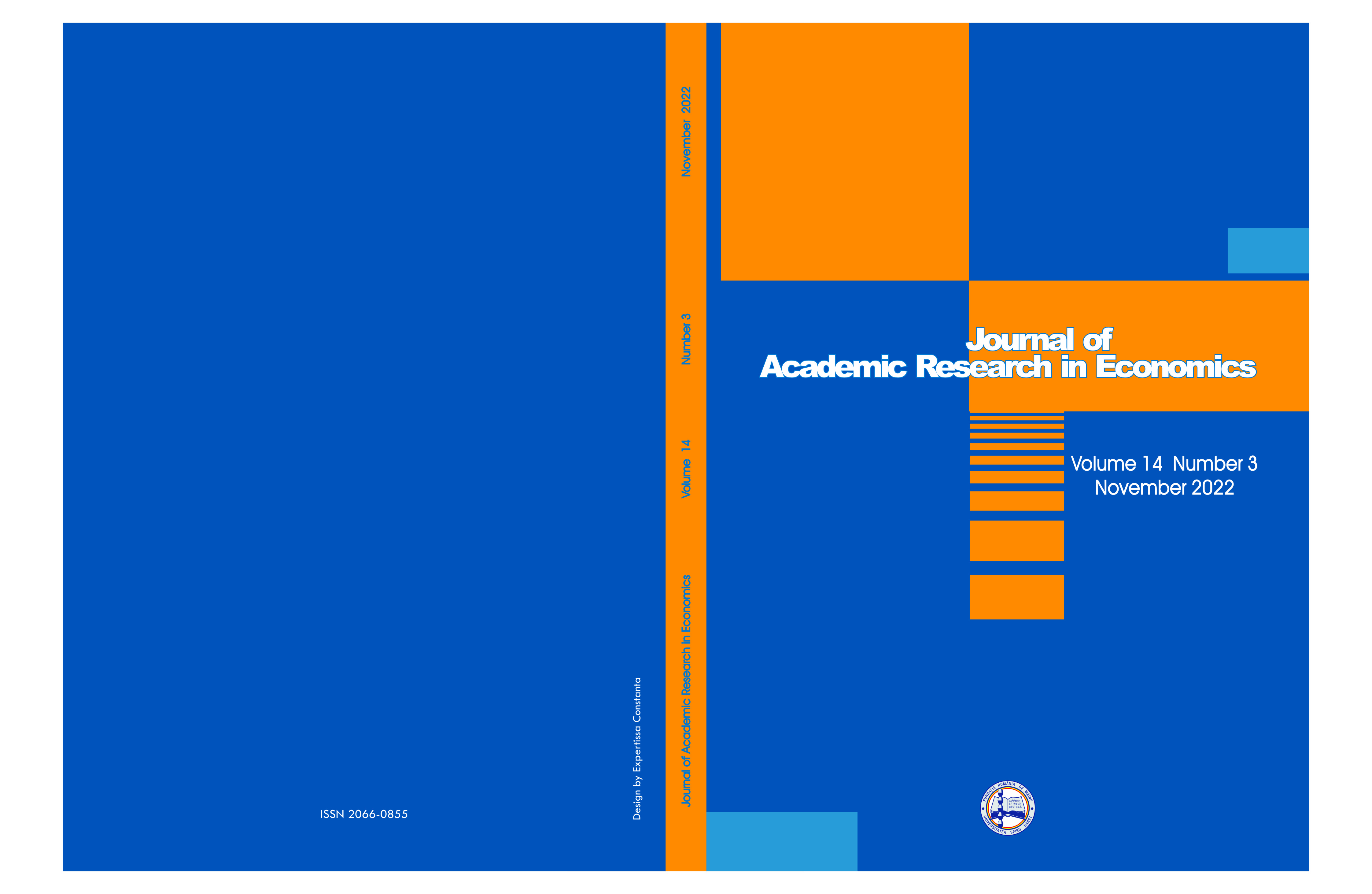LIQUIDITY OF STOCK MARKET AND INFLATION IN NIGERIA
LIQUIDITY OF STOCK MARKET AND INFLATION IN NIGERIA
Author(s): Helen Ibori UruemuSubject(s): Economic history, Transformation Period (1990 - 2010), Present Times (2010 - today), Financial Markets, Socio-Economic Research
Published by: Universitatea SPIRU HARET - Faculty of Accounting and Financial Management
Keywords: Stock Market; Fisher hypothesis; Inflation; Liquidity; ARDL Bounds Testing; Nigeria;
Summary/Abstract: The study investigates the effect of inflation on the liquidity of the Nigerian stock market using annual time series data from 1981 to 2020. The main objective of this study is to examine the impact of inflation on the liquidity of the Nigerian stock market by applying the Fisher Hypothesis and taking cognizance of interest and exchange rates as important control macroeconomic variables. We employed the unit root tests, cointegration and the ARDL Bounds Testing Technique in our econometric processes. The result of the unit root test shows a mixed order of integration. Therefore, we applied the ARDL Bound test in analyzing the series. Our results revealed that inflation rate has a positive and significant effect on Nigeria stock exchange liquidity within the period reviewed, affirming the Fisher hypothesis of 1930. More so, exchange and interest rates are significant with positive and negative impact on the market liquidity. The estimated regression line has a good fit and generally significant, and above all satisfies all the post test of normality, serial correlation, and recursive test of stability. The study recommends that, a reduction of personal income tax be enacted as a law in order to boost savings and investments in the market.
Journal: Journal of Academic Research in Economics (JARE)
- Issue Year: 14/2022
- Issue No: 3
- Page Range: 642-653
- Page Count: 12
- Language: English
- Content File-PDF

